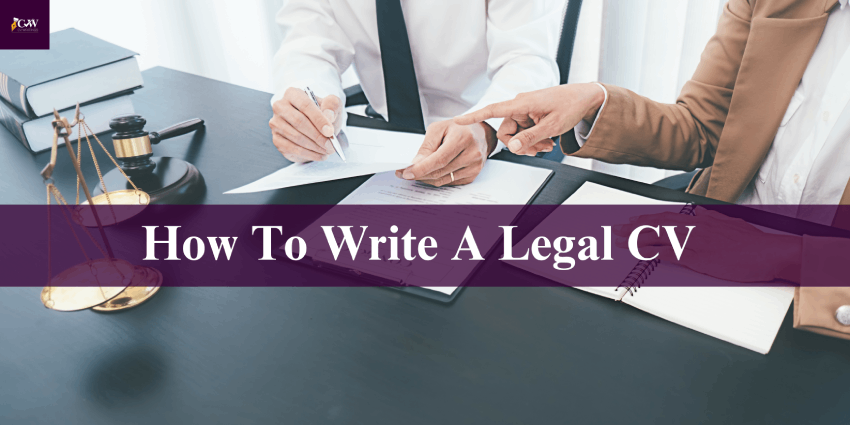If you believe in your legal abilities, we stand behind you. But how do you convince a law firm or a potential client? Let’s be honest – there are plenty of lawyers out there. They’ll quickly find someone else if they don’t see you as a good fit.
So, your first impression is crucial, even if it’s not in person. And the most reliable way to make a lasting impression is by creating an outstanding legal CV.
However, here’s the thing: lawyers aren’t typically known for their writing skills. Your expertise lies in crafting legal arguments, not resumes. So, how can you write a CV that makes an employer say, “This is the person I’ve been looking for”? We’re here to help!
Read this blog for some proven tips on writing a lawyer’s CV!
Win Your Case: 5 Essential Tips For Writing A Resume For A Lawyer
Paint A Good Picture Of Yourself In The Summary
You know how, as a lawyer, you dive into your client’s history to understand them better? Well, recruiters and employers do the same – they want to get a glimpse of who you are. That’s where your resume’s summary statement comes into play. But here’s the thing: many lawyers make a common mistake here – they forget about keeping it short and sweet!
Now, remember your legal training, where you’re taught to make your case briefly and effectively? Well, that skill is handy here, too. Your summary statement should be a maximum of two lines. With limited space, you’ve got to trim the unnecessary details and focus on what makes you stand out.
Here’s the basic rule: your statement should tell them who you are, what you bring to the table, and what you’ve achieved. It might seem tough to squeeze all that into two lines, so here’s a tip: consider hiring a reputable legal CV writing service to help you out!
Focus On The Design
As we mentioned earlier, your CV serves as your initial interaction with a potential employer. And you know what they say about first impressions, right? They often become lasting ones. So, just as you’d dress to impress for an interview, your resume should aim for the same impact.
Of course, the content is of utmost importance, but think of it this way: Would a company hire you if you showed up for an interview in a worn t-shirt and sweatpants, even if you ace the interview with your confidence? Chances are, you wouldn’t get a callback.
The same principle applies here. We may say not to judge a book by its cover, but in reality, everyone does it. So, before you dive into worrying about what to include in your CV, put some thought into selecting the perfect design.
Remember, it should appear neat and professional. However, that’s not all. Your resume should be easy to read and designed with the reader’s experience in mind. It should make it simple and quick for the reader to spot the essential details because, let’s face it, no recruiter has the time to sift through a CV word by word.
Shed Some Light On Your Specialized Skills
When it comes to the skills section, many people tend to list whatever skills come to mind. But let us be clear: this approach isn’t the right way to go. Often, an employer will form their initial opinion about you by glancing at this section. Hence, it’s crucial to use this space to showcase your most specialized skills.
Keep in mind that each skill you choose can significantly influence the impression you make. It’s important to emphasize what you want to be recognized for. If you’re looking for ideas, here are some examples that are valuable to mention in a legal CV:
- Negotiation
- Critical Thinking
- Problem-Solving
- Crisis Resolution
- Mediation
However, these skills are the ones typically expected from lawyers. So, what’s something unique that you bring to the table? Here’s a trick to resolve this dilemma: carefully review the job description and select the skills mentioned there. Doing so will make a recruiter see you as the standout candidate among the rest.
Be Strategic When Covering Your Employment History
You might have many years of experience as a lawyer, but does all that experience directly relate to the job you’re applying for now? If not, consider leaving out the less relevant parts. Employers mainly want to see if you have the specific experience and soft skills they need for the job.
To start, make your work history easy to follow. If you’re hesitant to exclude any work experiences, you can briefly mention them. Just note the firm’s name, when you started and ended the job, and summarize your duties in a few bullet points. And while you’re at it, ensure your resume looks neat and organized.
Also, remember the power of action words. They can convey the same information with more impact. Instead of using basic words like “worked,” “participated,” or “managed,” try using words like “formulated,” “conceptualized,” “mentored,” “devised,” and others that highlight your active role.
Refer to the table below to find some other powerful words commonly used by agencies who perform CV writing:
| Contracted | Delegated | Coordinated |
| Directed | Surveyed | Documented |
| Facilitated | Guided | Briefed |
| Systematized | Tested | Revitalized |
| Shaped | Tabulated | Unified |
| Visualized | Developed | Integrated |
Play The Keyword Game
Keywords can be your ticket to landing the job, but only if you use them strategically. Mindlessly copy-pasting keywords won’t do you any favours.
Instead, have a closer look at the job description. You’ll be surprised at how many clues employers provide if you invest time in thoroughly reading it. By smartly integrating these relevant keywords into your resume, you position yourself as the ideal candidate for the job.
What’s more, it demonstrates to the recruiter that you’ve done your homework and are genuinely interested in the position. Plus, it can significantly benefit you if the firm uses an Applicant Tracking System (ATS).
How Long Is A Legal Resume?
A legal resume should typically not exceed two pages, even if you have extensive experience. Employers value concise CVs, so keep it as brief as possible.
Is A Resume A Legal Document?
No, a resume is not a legal document. It functions more like a marketing document that promotes you to a potential employer. However, lying on your CV could lead to legal consequences for fraud.
Does A CV Expire?
CVs generally don’t have an expiration date. However, they can become outdated, so it’s a good practice to keep them updated as you accumulate more experience.
Does A CV Need To Include Age?
Whether you include your age in your CV is entirely your choice. It’s not necessary since age discrimination during the recruitment process is illegal.
Final Thoughts: Crafting An Impressive Legal CV Is Your Key To Getting Your Dream Job
You may be a well-experienced and famous lawyer, but you still need a relevant resume to wow an employer. So, revamping your CV is the only solution if you’re on a job hunt and want to land a good legal job.
And now that you have these fail-proof tips at your fingertips, doing so shouldn’t be a challenge. If you implement these tips, you’ll surely rest your strongest case in front of a recruiter. So, get working, and you’ll soon get an interview call!

